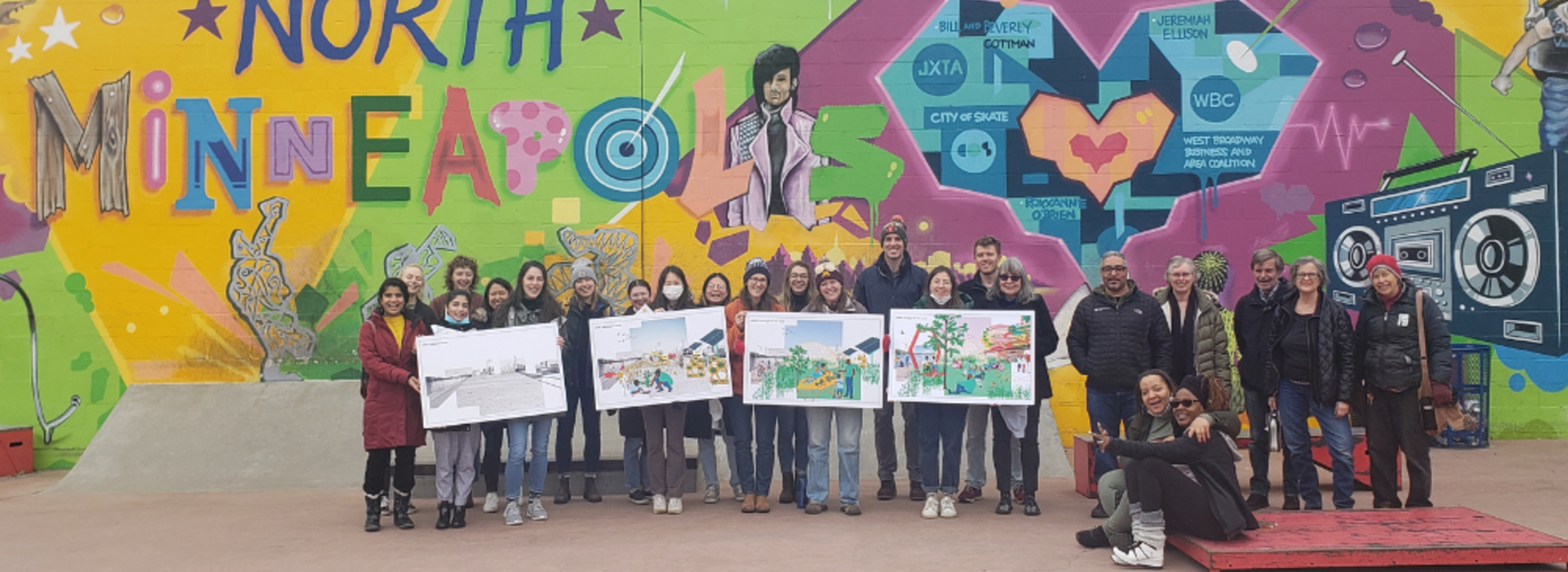
U of M Medical School Community Comes Together for Environmental Justice on Earth Day
U of M Medical School Community Comes Together for Environmental Justice on Earth Day
Medical Students for a Sustainable Future partnered with Community Members for Environmental Justice to invite medical students and physicians to an Environmental Justice Tour in North Minneapolis.
On April 22, U of M medical students, faculty and other health professionals participated in an Environmental Justice Tour of North Minneapolis, hosted by the nonprofit Community Members for Environmental Justice (CMEJ) in partnership with the U of M medical student group Medical Students for a Sustainable Future (MS4SF). Sarah Rasmussen, a 3rd year medical student, organized the tour as part of her public health advocacy fellowship with Advocates for Better Health and was granted funding from the Institute on the Environment.
Led by CMEJ founder Roxxanne O’Brien and Appetite for Change co-founder Princess Titus, both prominent community activists, the two-hour bus tour took participants through the primarily Black and Brown communities in Minneapolis’ 55411 and 55412 zip codes, highlighting persistent environmental health problems facing the neighborhoods. Participants visited seven sites that have been impacted by environmental damage. After the tour, participants gathered at Breaking Bread Cafe for group discussions led by Medical School faculty Laalitha Surapaneni, MD, and Kristi White, PhD on addressing concerns about environmental harm with patients during clinical encounters.
The group unanimously remarked on the strong impact the experience had on their thinking about the intersection of environmental and human health, and especially how prevalent these issues are within their own city. MS4SF member Melissa Walsh remarked that the tour was especially motivating as she thinks about what it means to be a future physician and scientist in Minnesota.
“I’m not originally from here,” she explained, “and it was great to get an insider perspective on the issues in this community so I can begin to understand.”
Another MS4SF member, Madi Sundlof, agreed, saying, “We often get information that’s trickled down from people who don’t live in these communities.”
During the group discussion, participants read medical case studies and discussed questions providers can ask to gauge patients’ environmental exposures, as well as how to address these risks with patients. Environmental exposures discussed included air pollution, particulate matters, lead exposure and access to whole, healthy foods.
Moving forward, Dr. Surapaneni says that it is important for physicians to keep environmental justice top of mind when working with patients and pursuing research opportunities.
“We all have our personal areas of clinical and research interests,” she stated. “But it is all so integrated with environmental health. It’s important to be aware of how everything comes together for our patients.”
Dr. Surapaneni encouraged students to reach out to her if they are interested in pursuing environmental research and stressed to all participants the importance of being activists in addition to health care professionals.
“To really have an impact, we need to focus on advocacy outside of our practice,” she emphasized.
O’Brien and Titus echoed this sentiment during the tour, posing the question, “If we don’t work to change the earth, where are we going to do all of this other important work?”
MS4SF is looking for new members and leaders for the 2023-24 school year. Learn more about how to get involved.
To find out how to partner with CMEJ, visit their website